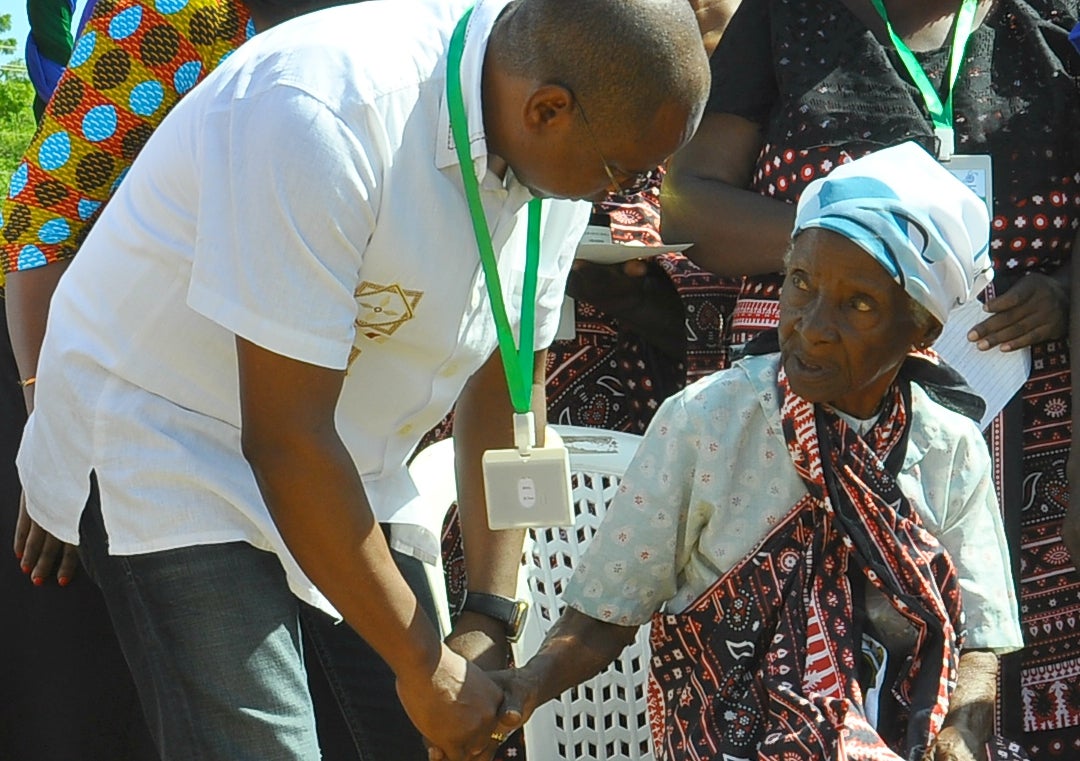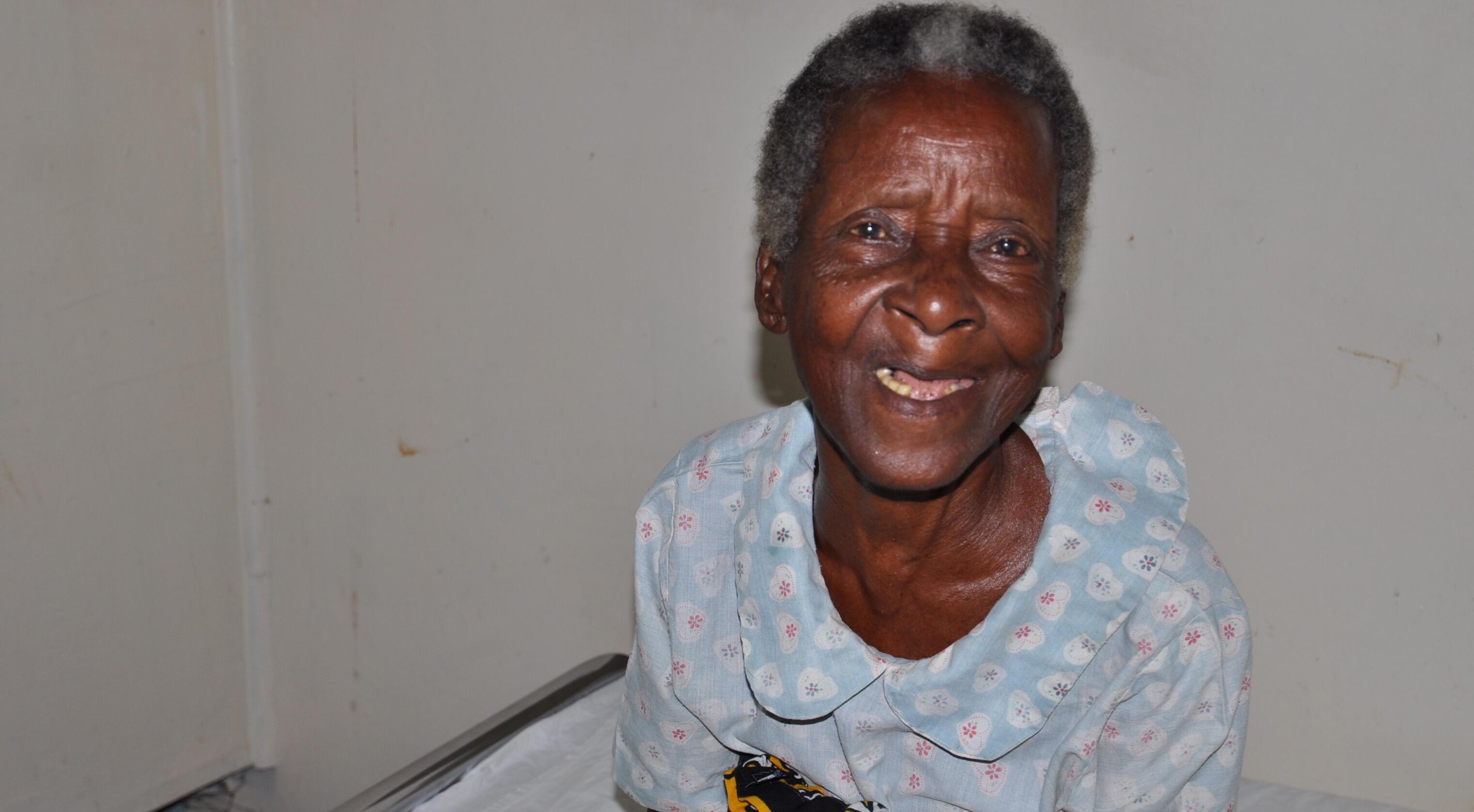At the bloom of her youth, exactly 50 years ago, Jumwa Kabibu Kai, a resident of Kidutani, a small village in Chonyi, Kilifi County, Kenya, was psychologically prepared for the birth of her second child.
As she went into labour, Jumwa was all alone in her small hut crying her heart out but no-one was in sight. This is because her nearest neighbor lived three kilometres away. Kidutani is generally a margnialised area with poor infrastructure, including accessibility to a health facility.
Jumwa found relieve walking around her compound because in her heart she knew her neighbours would finally either hear her or come visiting. This went on for three days when her sister came visiting. Immediately, her sister mobilized a few neighbours who rushed Jumwa to hospital.
Jumwa could not comprehend what her doctor was explaining to her hours after the delivery “but something was definitely wrong”, she recalls. She lost her baby in the process.
“I returned home after a day at the hospital, extremely disturbed by the loss of my child. Then almost immediately I began passing urine uncontrollably,” she narrates. “I didn’t take it very seriously because I thought it was something normal. In any case, there were other women in the village with the same condition,” she adds. This according to her was “the beginning of 50 years of a long nightmare.”
Unknown to Jumwa, she had developed obstetric fistula – a hole between the birth canal and bladder or rectum that is usually caused by prolonged obstructed labour. It is both preventable and treatable, but fistula plagues the lives of thousands of women in Kenya every year, leaving them incontinent for urine and/or stool.
“I knew a bad spell was cast on me,” she states. “How can this be happening to me? I remember the bad smell, the wetness, the shame and worst of all the disappointment I saw in my family. The feeling was all too awful,” she adds.
After a while, and out of desperation, Jumwa began to seek help - any help from traditional healers, local dispensaries and religious groups, but without much success. In 2009, she heard of possible fistula treatment in Coast General Hospital in Mombasa, but she was late therefore she did not get the assistance. This devastated her losing all hope she had.
Signed a new lease of life
“At some point, I convinced myself that my condition didn’t have a cure, and so I had to learn to live with it,” she says. She would later learn through Mwafungo, her 28 year-old granddaughter that she indeed was suffering from obstetric fistula and help was possible. Mwafungo, married and a mother of two, heard about the one-week fistula camp held at the Kilifi County Hospital in Kilifi County in May 2016.
The camp organized by United Nations Population Fund (UNFPA) in partnership with Kilifi County Government, Flying Doctors Society of Africa (FSDA), Freedom from Fistula Foundation (FfFF), Them Mushrooms[1] and Maendeleo Ya Wanawake[2] gave a once in a lifetime opportunity to women and girls, like Jumwa to receive free fistula repair as well as create awareness in the community about fistula.
“The past 50 years was hell on earth for me,” Jumwa, now aged 77, narrates. “I was completely isolated by family, friends and my whole community due to my condition, with some attributing it to witchcraft. Sadly, my husband too, left after I began suffering. I used to live alone in a hut in the outskirt of the village, with extremely minimal contact with anyone,” she adds.
Fifty years later, Jumwa cannot hide her joy and sparkling smile after the surgery.
“To be honest, I feel like I have signed a new lease of life,” she states. “I feel great. I feel young. I feel beautiful and wanted,” says an excited Jumwa before jokingly adding that now with her groove back, she expects to bump into a hunky single old man like herself and taste love one more time.
“I appeal to all women suffering with this condition to seek medical help. Fistula indeed is treatable,” she poses rather seriously
During the one one-week fistula camp, 65 women were screened, while 32 patients were admitted and 30 procedures done. Many of these women had faced discrimination and stigma with some being ostracized from the community they once belonged to.

Strengthening the health system
UNFPA has built the capacity of Kilifi County Hospital by procuring maternal health equipment for both basic and comprehensive obstetric care, including equipment for fistula repair. UNFPA has also invested in training 35 nurses on emergency obstetric and newborn care as well as pre-intra and post-operative care of fistula patients.
Also 19 community health workers were trained in identification of fistula patients and community sensitization. These community health workers are also acting as key architects in reintegration of the fistula survivors within the community. In addition, 35 nurses were trained in screening fistula patients and making the correct diagnosis as well as emergency obstetric care. This team will also act as mentors for their colleagues in the respective health facilities.
Kilifi County has one of the high teenage pregnancies, which together with poor access to emergency obstetric and newborn care may lead to increased risk for obstetric fistula. To this end UNFPA is working with other stakeholders including the community leaders and the County Government to encourage girl-child education, prevention of child marriages and gender based violence.
This partnership initiative by UNFPA contributes to the global movement of Campaign to End Fistula launched in 2003 to eliminate fistula and support its survivors through prevention, treatment, social reintegration and advocacy. Globally UNFPA has supported more than 70,000 fistula repair surgeries since 2003 for women and girls in need and campaign partners have enabled many more to receive treatment.
[1] Them Mushrooms is a musical group that partnered during the campaign to create awareness on fistula through music.
[2] Maendeleo Ya Wanawake is a non-profit voluntary women's organization with a mission to improve the quality of life of the rural communities especially women and youth in Kenya.


